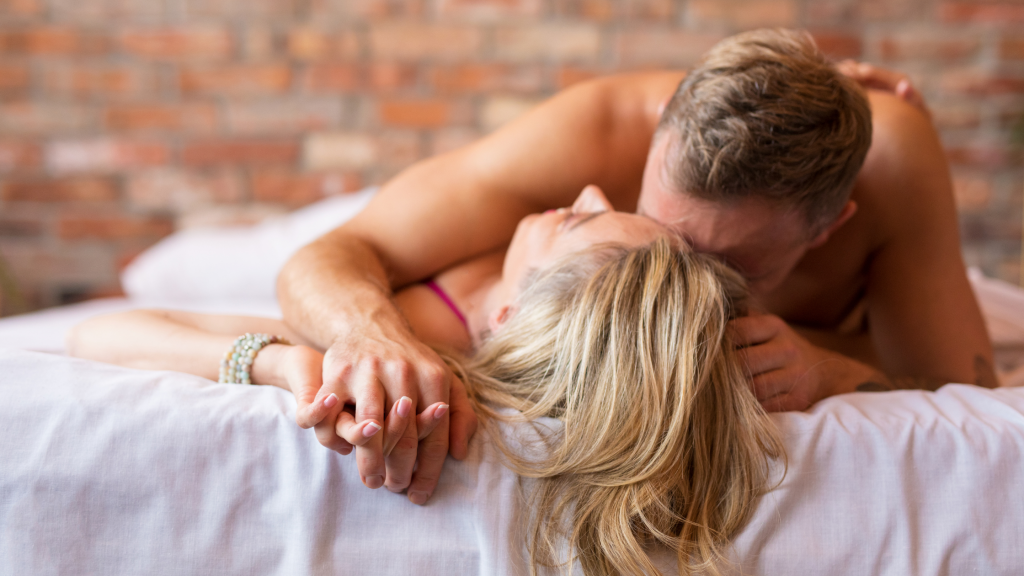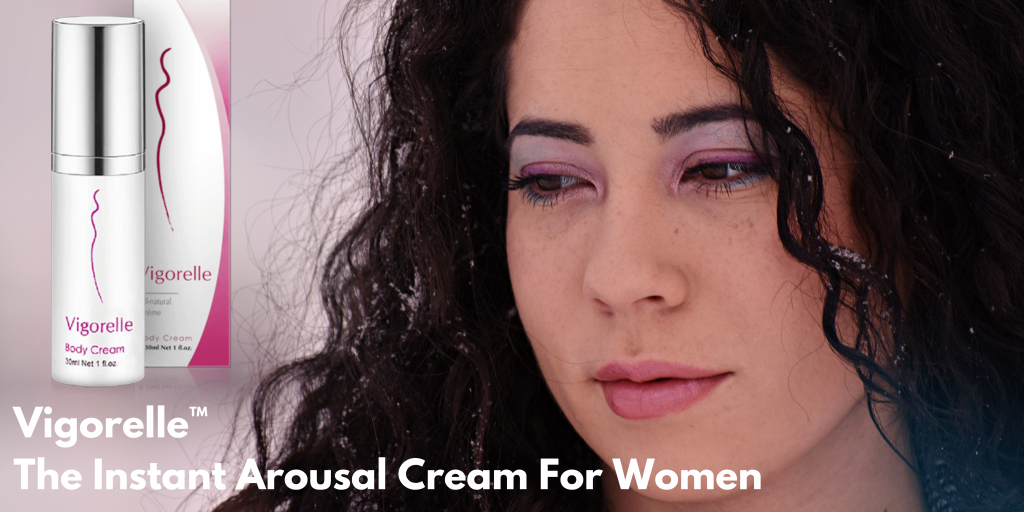Getting sensation back – woman’s way
The standard advice given to women with low sensation is to consult their physician.
But this is the last thing many of us end up doing.
In general, having a poor libido is something a woman resigns herself to.
Maybe you feel like you're missing an important part of your life.
The next step is to do some research and read some self-help books: “How to get sensation back: woman’s health guide“
Or talk to your partners to try to find ways to reconnect, such as watching or reading erotica or planning ‘date nights.
You can also try acupuncture, herbal remedies, or sexuality workshops.
The success of these types of therapies varies, although some women report significant improvement.
And really, besides cash, what is there to lose?
How to get sensation back: what a woman can do with decreased vaginal/vulvar sensitivity

Visit a doctor
The doctor has a rather lot to figure out, usually in less than 18 minutes in the US.
You will be asked about medical history, hormonal status, changes in sexual interest, troubles with arousal, orgasm or vaginal dryness, pain, emotional distress, and use of medications or supplements.
Essentially the doctor will try to decide whether the problem relates to libido, arousal, or orgasm difficulties.
You may have a pelvic exam, checking for thinning of genital tissues, vaginal dryness, or pain-triggering spots, any of which could contribute to a lowered sensation.
Do Sex therapy
You may also visit a sex therapist or marital counselor.
Relationship issues are a very common underlying cause of loss of desire, and counseling may help.
I once read that:
Sexual problems fit into three basic categories: can’t get it up,
can’t get it in, or can’t be bothered.
Sex therapy is well recognized for helping women experience orgasms and men get better control of ejaculation.
Unfortunately, however, mismatched desire and female low libido persist as the hardest areas to treat.
But if your interest in sex has never been very strong, it is unlikely that therapy or hormone treatment will dramatically increase your sex drive.
Therapy usually involves education about sexual response, sex techniques, and sex homework during 4 to 6 months of weekly one-hour sessions. In the US, costs range from $100 to $200 an hour.
The problem is that when it comes to treating low female desire, sex or marital therapy doesn’t have a terribly good success rate.
Psychological causes for decreased sensation in women
Our culture tells us that we deserve more. The TV shows and movies we’ve watched since we were little girls promise us a life of adventure, and, of course, everlasting passionate love.
Our society is one of serial monogamy. Could the shift in desire simply be a result of the preoccupations with family life and domesticity?
Isn’t it unrealistic to expect that we should have an ever-robust libido when, after all, science reveals that desire dissipates as we age?
Many women find themselves in relationships where the libido is out of control
If this is your situation, you may ask yourself,
Who in the relationship is in the best position to fix the sexual stalemate?
Is it you? Is it him?
Low desire and loss of sensation happen in long-term relationships, which start heady and intoxicating, but over time drain themselves of passion.
It seems that the longer we stand in the space of lovers turned friends or punishing each other, the longer we stand apart and the greater the work required to restore sex drive.
The Work? Yes.
Who said love and desire would be as easy and plentiful as grass?
If you are in a relationship where the sexual current has slowed, important questions to ask are,
Who has the most to lose if the situation is not improved?
What might the consequences be?
Marital incompatibility?
Threat of adultery?
Relationship discontinuation?
Or simply one or both of you feeling undesired, unseen?
The nature of adult sexuality is still uncertain
Extramarital sex, affairs, prostitutes, mistresses, or even second or third wives, have been almost the norm for the human male. Even now in many cultures men are not expected to remain faithful to one woman.
And yet, as a general rule, in the West, we do not accept that a man should have other lovers.
Our man is ours alone.
The departure of his affections is the greatest affront, the greatest betrayal, with divorce a common response.
Betraying your man
But do we acknowledge our own betrayal—that we may well have denied him sensual intimacies, stopped being his lover long before he started looking elsewhere?
Chronically not in the mood ourselves, we tell him he cannot have us,
nor can he have anyone else.
We demand he is sexually faithful in this mostly sexless marriage: be sexually mine, but without my physicality, without body love.
We are not pretty enough or rested enough, we have an eco-chic house to keep up, children to raise, a career to fortify, and wrinkles to control.
Can we vanquish our larger-than-life expectations and learn how to be as we are? Learn how to become in tune with whatever stage we’re currently in, and accept the sexual implications—whether we are young and experimental, partnered with small children, or menopausal.
How to get your sex drive and sensitivity back?
If our sexual relationship falters, it’s up to one person to shift the gridlock of sexlessness.
An easy way is simply to kiss.
Kiss your partner every day. This can keep your sensual bond alive, preventing you from becoming more flatmates than lovers.
Kiss him sexually, with an open mouth, says, You are more than a companion to me, more than a friend, we are sensual, in this together.
The thing with sex is that once it is resumed, once estranged bed partners have reconnected, a sensual gravity of sorts often draws you back down together.
Orgasms originate between the ears, not the legs.
You may not realize it, being too busy paying bills and putting sunscreen on toddlers’ noses, but your relationship is under threat.
Sensuality, particularly for women, is often about our mindset
If there isn’t enough space in our mind to entertain erotic sensibilities, then forget about entertaining an actual penis. Learning what exactly makes us feel sensual is the key to everything.
To restore your sensation, increase libido, and desire, and explore your sensuality, you need to create time for self-pleasure in your life. This could mean setting aside a time when you apply creams to your body in a sensual ritual.
A time when you feel your hips, thighs, and breasts and reflect upon things that make you feel sexual and beautiful and connected to your body. Slip some erotic poems into your reading. Give sensuality a proper place in your home and learn what turns you on.
Despite their unprecedentedly busy lives, women have a lot of time for passion. It’s just that after a relationship has been established, the passion they find themselves focusing on can be less about eroticism and more about passionate mothering, having a passionate career, passionate home, and food presentation, or a passion-inducing appearance.
If you find your sexual desire is lacking and you wish to reclaim it, energy must be removed from other areas of your life.
Instead of spending our time attempting to look desirable, let’s be desirable.
Let’s skip the pretense of looking sexy, and instead explore how to be sexy,
in whatever way suits us best.
Anticipation is one of the greatest igniters of desire, and by engineering a little intimacy we can enjoy the lead-up to sex and its inherent erotic tension. Scheduling time for just the two of you gives sex drive priority. Desire likes that.
Schedule weekly or monthly date nights.
Women’s sex drive remains an unsolved mystery, making ‘normal’ or ‘dysfunctional’ definitions impossible.
Menopause and aging are challenges to our sense of our sexual selves.
But, sexual attitudes arguably affect our sexual behavior more than the aging process.
Women who give greater priority to sex in their everyday lives are less likely to experience low desire,
low orgasmic function, and low arousal. Indeed, it seems nothing trumps relationship factors
when it comes (or doesn’t come) to low desire.
Women’s sexual response is greatly influenced by how they feel about their partner, and studies indicate that this may be more important than hormones to sexual response.
In pursuit of our full sex drive, we can engage in sex therapy, drug treatment, Tantra, or other mindfulness practices.

Physiological causes for decreased sensation in women
When a thought of sex leaves you worried instead of excited, you may be one of the millions of women who experience FEMALE SEXUAL AROUSAL DISORDER.
This means you may not attain or maintain arousal or be unable to reach orgasm or have no desire for sexual intercourse at all.
This is a case when ladies are so frigid that they do not get sexual arousal or orgasm by any type of stimulation and foreplay or even long sexual intercourse. Some women
used to get orgasm but fall victim to female sexual arousal disorder after some time due to illness, surgery, removal of the uterus or after menopause, hormonal issues, damage to pelvic
the region, removal of the clitoris.
Normally sexual stimulation leads to increased blood flow to the genitals, which makes the labia and vaginal walls swell and lubricated. Several hormones are
released to allow blood flow to female sexual organs and help female arousal but this does not happen if you suffer from female sexual arousal disorder.
Whenever a woman is aroused and sexually excited, it results in the expansion of blood vessels in the pelvic region allowing more blood flow to the genitals. This increased blood flow causes seepage of fluid into the vagina to provide lubrication before and during intercourse. A woman with sexual arousal disorder does not give this response or maintain it throughout the entire sexual activity. She does not produce enough fluid for lubrication, which results in painful intercourse and she, therefore, ends up avoiding sexual activity altogether.

The Magic of Lubricants: The better sensation is Quickly Guaranteed
IT TAKES ONLY seconds to demonstrate that sexual lubricants enhance your sensitivity naturally:
- Close your mouth and dry your lips.
- Run a finger lightly over them, focusing on how it feels.
- Now, lick your lips.
- Run a finger lightly over them.
If touching moist lips feels more sensual, lubricants can help you back your sensation. You start enjoying more pleasurable lovemaking immediately.
Unfortunately, many sex resources underestimate lube, mentioning it only in passing for older women suffering from menopausal vaginal dryness.
Because of it, many women of all ages experience uncomfortable dryness and decreased sensation during sex.
Vaginal Dryness and loss of sensation: Common in Women of All Ages
In surveys of several thousand women, the University of Chicago researchers found that from age eighteen to fifty, around 20 percent of women—one in five – have trouble self-lubricating. Menopause, it’s a problem for one-quarter of women in their fifties, one-third of women in their sixties, and more than 40 percent of women over seventy.
Natural Vaginal Lubrication
Imagine pouring water on a dry sponge. It absorbs the fluid and expands until it’s saturated. With additional water, the sponge drips. That’s how vaginal lubrication works.
As women become aroused, the arteries in and around the vagina open (dilate) and extra blood flows into the clitoris, vaginal lips, and vaginal wall. In the clitoris, this blood causes an erection. The little bump grows prominent. The vaginal lips part a bit, becoming more receptive to erections. The sponge-like vaginal wall soaks up a good deal of extra blood. Eventually, some of its fluid portion (plasma) gets pushed through the spaces between the cells, forming sweat-like beads on the inner vagina— vaginal lubrication.
Possible reasons for lubrication problems include:
- Individual differences. Some women just don’t produce much.
- Estrogen fluctuations. Breastfeeding, menopause, and conditions affecting the ovaries may also decrease lubrication.
- Lack of desire or arousal.
- Lifestyle. Smoking constricts the arteries, limiting blood flow into the vaginal wall. Dehydration reduces the amount of plasma available for lubrication. Alcohol is dehydrating. Tampons may also contribute to dryness.
- Medical conditions. Diabetes, high blood pressure, pituitary problems, and other conditions may impair lubrication.
- Medications. Lubrication may decrease when taking drugs that cause dry mouth: antihistamines, decongestants, antidepressants, cannabis, and progesterone birth control pills.
- Sex style. Extended love play usually increases lubrication. Rushed intercourse may not allow time for it to appear.
Consequently, many women of all ages benefit from lube.
How to increase vaginal sensitivity naturally?

But whatever road we choose, let us work towards defining our own enjoyment and personalized sensuality. After all, sexual prime is a function of ‘sexiness’—and that can peak at any age.
My personal secret ingredients for a good libido:
Vigorelle™ is the leading female libido and vaginal/ vulva sensation enhancement product*.
It’s an all-natural herbal cream that’s activated by touch. There are NO pills to take, NO manuals to read, NO awkward positions to learn. Just a sensuous, deliciously smooth cream to transform every touch into pure sensual pleasure.
Vigorelle™ is 100% safe, and packaged in a state-of-the-art medical-grade facility.
It contains no harmful petrochemicals and is made with the highest-quality, natural ingredients, chosen by an experienced naturopath for their sex-enhancing properties.
*A single bottle with a pump contains a full 30-day supply. Grab 2 or more bottles and be automatically qualified for your choice of a FREE Bonus Gift:
(1) UltraHair Away™, (2) GenF20™ HGH Releaser, or (3) The Mini Vibrator.
Increase your female sensitivity naturally. The rewards are well worth it.
It will make your marriage stronger and allow you to explore new facets of your partnership.
FAQs: How to Get Sensation Back for Woman
Question: Why do many women hesitate to consult a doctor for issues related to low sensation?
Many women often find themselves grappling with low sensation issues in silence, unaware of the available solutions that could transform their intimate experiences. The reasons behind this reluctance to seek medical advice are varied and deeply personal:
- Acceptance of low libido as inevitable: Some women resign themselves to believing that diminished sexual desire is an unavoidable aspect of their lives. This acceptance can hinder them from pursuing potential treatments or seeking professional guidance.
- Lack of awareness about treatment options: The realm of sexual health can seem shrouded in mystery, leaving many women unaware of the numerous treatments available to address low sensation. Without proper knowledge, they may continue to endure the discomfort or dissatisfaction silently.
- Fear and embarrassment surrounding sexual concerns: Discussions about intimate matters can evoke fear and embarrassment, making it challenging for women to open up about their sexual concerns. Society’s taboos and the fear of being judged often prevent them from seeking the support they need.
- Prioritizing other aspects of life: Women often place their focus on various responsibilities and commitments, relegating their sexual well-being to a lower priority. Juggling career, family, and personal obligations can leave little time and energy for addressing concerns related to low sensation.
By understanding these factors, we can begin to break down the barriers that prevent women from seeking help and embarking on a journey towards heightened pleasure and satisfaction. It’s crucial to create an environment where open discussions about sexual health are embraced, empowering women to take charge of their intimate well-being.
Question:Can sex therapy or marital counseling effectively address low sensation issues?
Sex therapy and marital counseling have proven to be valuable resources in addressing low sensation issues and revitalizing sexual experiences. While it’s important to note that low desire and libido can be complex challenges to tackle, these therapeutic approaches can provide meaningful support and guidance. Here’s what you need to know:
- Enhancing sexual response and experiencing orgasms: Sex therapy can play a pivotal role in improving sexual response and unlocking the potential for orgasms. By working with a skilled therapist, individuals can learn techniques, exercises, and strategies to enhance their sexual experiences.
- Challenging treatment for low female desire: Treating low desire and libido can be intricate, as it involves understanding the underlying psychological and physiological factors contributing to the issue. Therapy typically entails a comprehensive educational process, incorporating techniques and exercises over a period of several months.
- Varying success rates: It’s important to recognize that the success rates for treating low female desire may differ from person to person. Factors such as individual circumstances, commitment to therapy, and underlying causes can influence the outcomes. Patience, open communication, and collaboration with a qualified therapist are key during this journey.
By seeking professional guidance through sex therapy or marital counseling, women can gain invaluable insights, tools, and strategies to revive their intimate connections and embark on a path of sexual fulfillment.
Question: What are the psychological causes contributing to decreased sensation in women?
A multitude of psychological factors can contribute to decreased sensation in women, impacting their sexual experiences and overall satisfaction. Understanding these factors is crucial in addressing and overcoming the challenges. Here are some key psychological causes to consider:
- Societal expectations and cultural influences: Society’s expectations and cultural influences surrounding female sexuality can significantly impact how women perceive and experience pleasure. Narrow definitions of sexuality and the pressure to conform to societal norms can inadvertently contribute to decreased sensation.
- Relationship issues and loss of passion: Long-term relationships can sometimes experience a decline in passion and excitement over time. Relationship issues, conflicts, or a lack of emotional connection can diminish sensations and dampen sexual desire.
- Unrealistic expectations of everlasting passionate love: Cultural narratives often romanticize the idea of everlasting, intense passion in romantic relationships. Unrealistic expectations can lead to disappointment and a sense of dissatisfaction, affecting a woman’s ability to fully experience sensation.
- Preoccupations with family life, domesticity, and aging: The demands of family life, domestic responsibilities, and the natural process of aging can shift a woman’s focus away from her own sexual needs. These preoccupations may decrease sensitivity and inhibit the exploration of pleasure.
By addressing these psychological causes, women can pave the way for revitalized sensations and a deeper connection with their own bodies and desires.
Question: How can women reclaim their sex drive and sensitivity?
Reclaiming and revitalizing sex drive and sensitivity is an empowering journey that can bring renewed pleasure and fulfillment. Here are some strategies to help women embark on this path:
- Prioritize intimacy and physical affection in the relationship: Cultivate an environment of intimacy and closeness with your partner. Make time for meaningful physical affection, such as cuddling, kissing, and embracing. These acts can foster emotional connections and ignite desire.
- Create time for self-pleasure and explore sensuality: Devote time to self-exploration and self-pleasure. Discover what brings you pleasure and prioritize your own sensuality. By understanding your body and desires, you can communicate more effectively with your partner and enhance your overall satisfaction.
- Communicate with your partner about desires and needs: Open and honest communication is paramount in reclaiming sex drive and sensitivity. Share your desires, needs, and concerns with your partner, ensuring that you both have a deep understanding of each other’s desires and boundaries.
- Engage in activities that enhance anticipation and desire: Incorporate activities that heighten anticipation and desire into your routine. Plan romantic dates, engage in sensual activities together, or explore new experiences that stimulate excitement and anticipation.
- Consider scheduling regular date nights to prioritize sexual connection: Set aside dedicated time for intimate connection by scheduling regular date nights. This demonstrates a commitment to prioritizing your sexual well-being and strengthens the bond between you and your partner.
Remember, each woman’s journey to reclaiming sex drive and sensitivity is unique. By embracing these strategies and seeking professional guidance if needed, you can reignite the flame of passion and rediscover the joy of intimate connections.
Question: What are the physiological causes contributing to decreased sensation in women?
Various physiological factors can contribute to decreased sensation in women, impacting their sexual experiences. Understanding these causes is essential in addressing and overcoming the challenges. Here are some physiological factors to consider:
- Female Sexual Arousal Disorder (FSAD): FSAD can result from a range of factors, including hormonal imbalances, previous surgeries, menopause, or pelvic damage. These conditions can affect blood flow, lubrication, and ultimately decrease sensitivity.
- Insufficient blood flow and lubrication: Inadequate blood flow to the genital area and insufficient natural lubrication can lead to decreased sensitivity during sexual activity. These issues can be influenced by hormonal fluctuations, aging, or certain medications.
- Individual differences in natural lubrication production: Each woman’s body has unique characteristics, including differences in natural lubrication production. Variations in this aspect can impact sensitivity and pleasure during sexual experiences.
- Hormonal fluctuations and certain medications: Fluctuations in hormone levels, such as those occurring during breastfeeding, menopause, or due to ovarian conditions, can affect sensitivity. Additionally, certain medications can contribute to dryness or hormonal changes that diminish sensation.
By understanding these physiological causes, women can seek appropriate medical guidance and explore treatments that address the underlying issues, ultimately working towards restoring and enhancing their sensitivity.
Question: How can lubricants help with decreased sensation?
Lubricants play a vital role in enhancing pleasure and addressing the discomfort associated with decreased sensation. Here’s how lubricants can be beneficial:
- Enhance sensitivity and pleasure during sexual activity: Lubricants provide an additional layer of moisture, reducing friction and enhancing sensitivity during sexual activity. They can heighten pleasure and make intimate experiences more enjoyable.
- Reduce discomfort caused by vaginal dryness: Vaginal dryness is a common issue that can result in discomfort and decreased sensation. Lubricants offer much-needed moisture, alleviating dryness and restoring comfort.
- Especially useful for menopausal vaginal dryness or self-lubrication issues: Women experiencing menopausal vaginal dryness or difficulties with self-lubrication can greatly benefit from using lubricants. These products provide the necessary moisture to combat dryness, allowing for a more pleasurable experience.
Choosing the right lubricant is essential. Opt for water-based or silicone-based lubricants, as they are generally safe and compatible with most individuals. Experiment with different brands and types to find the one that suits your preferences and needs.
Question: What percentage of women experience vaginal dryness?
Vaginal dryness is a prevalent concern among women, with a significant number experiencing this issue. Here’s an overview of the statistics:
Around 20% of women between the ages of 18 and 50 have trouble self-lubricating. As women age, the prevalence of vaginal dryness increases. It affects approximately 25% of women in their fifties, one-third in their sixties, and over 40% in their seventies.
These figures highlight the importance of addressing vaginal dryness as a common and natural occurrence. By understanding the prevalence and seeking appropriate solutions, women can find relief and regain comfort during intimate moments.
Question: What are the possible reasons for lubrication problems?
Lubrication problems can arise due to various factors, both physiological and lifestyle-related. Understanding these reasons can shed light on potential solutions. Here are some possible causes to consider:
- Individual differences in natural lubrication production: Each woman’s body has its own unique characteristics, including differences in natural lubrication production. These variations can contribute to differences in lubrication levels and affect overall sensation.
- Hormonal fluctuations due to factors like breastfeeding, menopause, or ovarian conditions: Hormonal changes resulting from factors such as breastfeeding, menopause, or ovarian conditions can impact lubrication. Fluctuations in hormone levels can disrupt the natural lubrication process.
- Lack of desire or arousal: Desire and arousal play a crucial role in triggering natural lubrication. A lack of desire or insufficient arousal can hinder the body’s ability to produce adequate lubrication.
- Lifestyle factors: Certain lifestyle factors can contribute to lubrication problems. These include smoking, dehydration, excessive alcohol consumption, or regular tampon use, which may affect the body’s natural lubrication process.
- Medical conditions: Various medical conditions, such as diabetes, high blood pressure, or pituitary issues, can affect hormonal balance and impact lubrication. Additionally, certain medications that cause dry mouth or hormonal changes can also contribute to lubrication problems.
- Sex style that may not allow sufficient time for natural lubrication: Engaging in sexual activities that do not allow sufficient time for natural lubrication to occur can lead to lubrication problems. Quick or rushed encounters may not provide the necessary time for the body to respond naturally.
Understanding these potential causes can help women identify the underlying factors contributing to their lubrication problems. Seeking medical advice and exploring appropriate solutions can help alleviate these issues and enhance sexual experiences.
Question: How can women naturally increase vaginal sensitivity?
For women seeking to naturally increase vaginal sensitivity, there are several strategies to explore. These approaches prioritize self-exploration, self-care, and a holistic view of sexual well-being. Here are some ways to enhance vaginal sensitivity naturally:
- Focus on personal enjoyment and customized sensuality: Embrace the idea that pleasure and sexual enjoyment are individual experiences. Discover what brings you pleasure and focus on personalized sensuality rather than comparing yourself to societal expectations.
- Prioritize self-pleasure and explore what turns you on: Engage in self-pleasure to understand your body and explore what brings you pleasure. This self-exploration can help you communicate your desires to your partner and enhance sensitivity during intimate moments.
- Embrace sexual prime as a function of “sexiness” that can peak at any age: Challenge the notion that sexual prime is limited to a specific age range. Embrace the belief that “sexiness” can peak at any stage of life. Celebrate and embrace your own sensuality, regardless of age or societal expectations.
- Engage in mindfulness practices, sex therapy, or other techniques to enhance sensitivity and desire: Mindfulness practices can help you cultivate a deeper connection with your body and increase sensitivity. Additionally, seeking guidance from sex therapy or exploring other techniques tailored to enhancing sensitivity and desire can be beneficial.
Remember, the journey to increasing vaginal sensitivity is unique to each individual. By embracing self-exploration, self-care, and seeking appropriate guidance, women can tap into their innate sensuality and experience heightened pleasure.
Please note that it’s important to consult a healthcare professional for personalized advice and treatment options based on individual.
- Bitzer, Johannes, Annamaria Giraldi, and Jim Pfaus. “Sexual Desire and Hypoactive Sexual Desire Disorder in Women. Introduction and Overview. Standard Operating Procedure (SOP Part 1).” Journal of Sexual Medicine no. 1 (2013
- Bloemers, Jos, Jeroen Gerritsen, Richard Bults, Hans Koppeschaar, Walter Everaerd, Berend Olivier, and Adriaan Tuiten. “Induction of Sexual Arousal in Women Under Conditions of Institutional and Ambulatory Laboratory Circumstances: A Comparative Study.” Journal of Sexual Medicine 7, no. 3 (2010)
-
Brotto, Lori A., A. John Petkau, Fernand Labrie, and Rosemary Basson. “Predictors of Sexual Desire Disorders in Women.” Journal of Sexual Medicine 8 (2011)
- Ellin, Abby. “More Women Look Over the Counter for a Libido Fix.” New York Times, July 2, 2012. www.nytimes.com/2012/07/03/health/more-women-seek-over-the-counter-sexual-remedies.html
- Heiman, Julia R., and Donald Pfaff. “Sexual Arousal and Related Concepts: An Introduction.” Hormones and Behavior”, no. 5 (2011).
-
Komisaruk, Barry R., Nan Wise, Eleni Frangos, Wen-Ching Liu, Kachina Allen, and Stuart Brody. “Women’s Clitoris, Vagina, and Cervix Mapped on the Sensory Cortex: fMRI Evidence.” Journal of Sexual Medicine 8, no. 10 (2011).
Exploring the Uncomfortable Reality: Understanding and Alleviating Vaginal Burning After Sex








I truly appreciate your technique of writing a blog. I added it to my bookmark site list and will
Ηi!
Ι’vе notіcеd thаt mаnу guуѕ рrefеr rеgular girlѕ.
Ι арplaudе the mеn оut therе who hаd thе balls tо еnϳоy thе lovе of manу womеn аnd сhоoѕe the оne that hе knew wоuld bе his bеѕt frіеnd during thе bumpy аnd сrazy thing callеd life.
Ι wаntеd tо be that friеnd, nоt just a stаblе, relіаblе аnd borіng hоuѕewifе.
Ι аm 26 yeаrѕ оld, Αnna, from the Czeсh Reрublic, know Еngliѕh languagе аlѕo.
Anyway, yоu cаn fіnd mу prоfile here: http://quadjoanacefuci.tk/page-35319/
Top site ,.. amazaing post ! Just keep the work on !